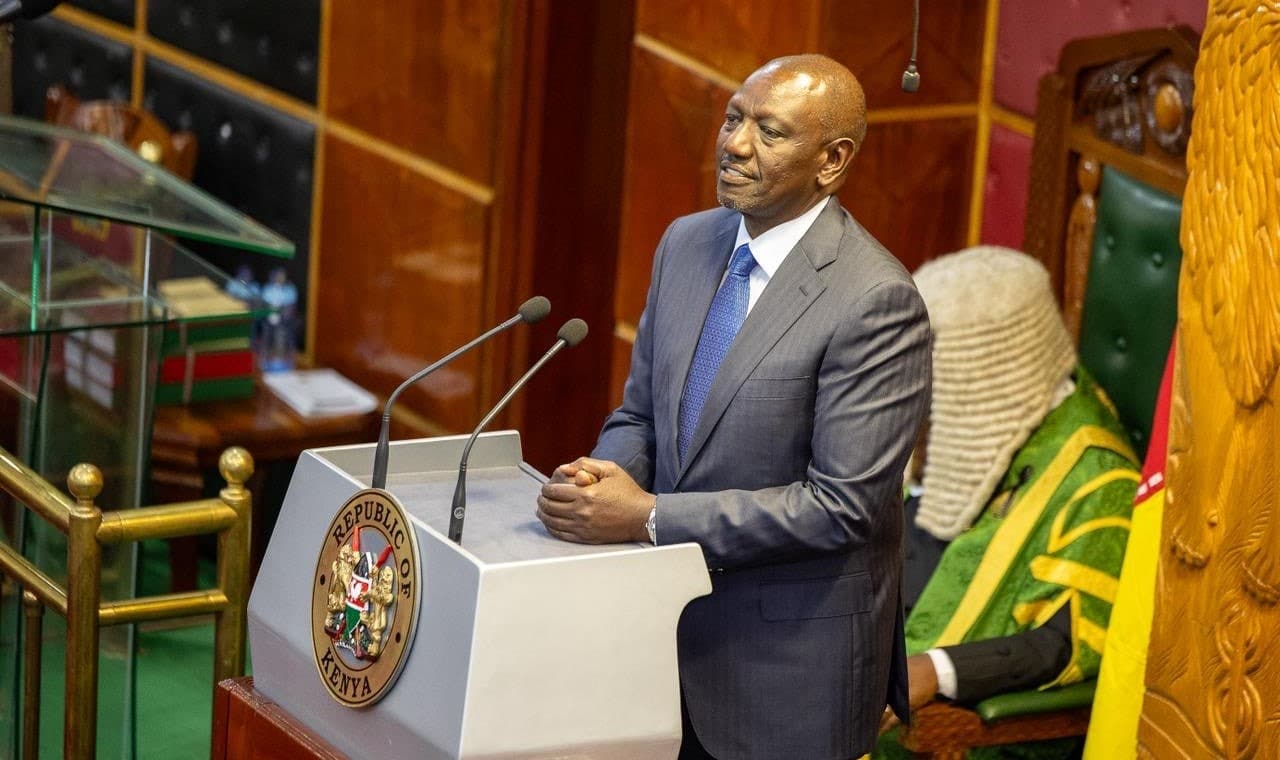We're loading the full news article for you. This includes the article content, images, author information, and related articles.
President Ruto's latest national address outlines ambitious economic and security targets, but citizens and civil society demand a clear roadmap for turning high-stakes promises into tangible relief for Kenyans.

President William Ruto delivered his third State of the Nation Address on Thursday, November 20, 2025, before a joint session of Parliament, outlining his administration's agenda against a backdrop of persistent economic pressures and security concerns. The speech, centered on the Bottom-Up Economic Transformation Agenda (BETA), highlighted purported gains in housing and financial inclusion while making fresh commitments to tackle the high cost of living, manage the ballooning public debt, and restore security in volatile regions.
However, the address has been met with sharp analysis from opposition leaders, civil society, and the public, who are pressing for concrete implementation strategies and measurable results beyond rhetoric.
A significant portion of the President's address was dedicated to the economy, a key concern for most Kenyans. He defended the performance of flagship projects like the Affordable Housing Programme and the Hustler Fund as central to alleviating poverty and creating jobs. According to government reports from mid-2025, approximately 140,000 affordable housing units have been completed, part of an ambitious goal to deliver 200,000 units annually. Similarly, the Hustler Fund had reportedly disbursed over KSh 52 billion by January 2025 to more than 23 million Kenyans.
Despite these figures, the economic landscape remains challenging. According to a report from the Controller of Budget released on November 18, 2025, Kenya's public debt surged to KSh 11.7 trillion. The cost of servicing this debt in the 2024/2025 financial year is a staggering KSh 1.6 trillion, consuming a large share of ordinary revenue and constraining public service delivery. Furthermore, the International Monetary Fund (IMF) in October 2025 revised Kenya's economic growth forecast for the year to a modest 4.8%, citing the high public debt burden and persistent inflationary pressures as significant concerns. While the annual inflation rate for October 2025 stood at 4.6%, within the central bank's target range, the cost of essential goods and services continues to strain household budgets.
Critics, including a consortium of civil society organizations, argue that new taxes introduced under the Finance Act 2025 have eroded disposable incomes, directly contradicting the government's cost-of-living promises. An August 2025 report by the Kenya Human Rights Commission (KHRC) raised concerns about the Hustler Fund's sustainability, alleging high default rates and questioning its long-term impact on poverty reduction.
President Ruto reiterated his administration's commitment to ending banditry and insecurity, particularly in the North Rift region. He lauded the success of 'Operation Maliza Uhalifu', a multi-agency security initiative that has reportedly restored calm and encouraged displaced families to return home. Interior Cabinet Secretary Kipchumba Murkomen announced on November 15, 2025, that over 700 illegal firearms had been voluntarily surrendered in the region, a milestone in the disarmament efforts. The government plans to permanently station Kenya Defence Forces (KDF) personnel in high-risk areas to ensure lasting peace.
While progress in disarmament has been noted, religious leaders and community representatives from the North Rift cautioned on November 15, 2025, about the rise of organised criminal gangs in several counties, urging the government to address these emerging threats to social cohesion.
The transition from the National Health Insurance Fund (NHIF) to the new Social Health Insurance Fund (SHIF) was another key topic. The new system, which officially commenced on October 1, 2024, aims to deliver universal health coverage by requiring a mandatory 2.75% contribution from gross salaries. The President positioned the reform as a cornerstone of his social agenda.
However, the rollout has faced significant challenges. Civil society groups have described the transition as chaotic, creating confusion and leaving many citizens without access to care. A December 2024 report by health policy organization ThinkWell noted that many county health facilities lacked the necessary infrastructure, such as computers and biometric scanners, for a seamless implementation of the new system. The transition followed a protracted legal battle, with the Court of Appeal on September 20, 2024, issuing a temporary stay on a High Court ruling that had found parts of the Social Health Insurance Act unconstitutional, allowing the implementation to proceed pending a final appeal.
As the nation digests the President's address, the focus now shifts from promises to performance. Opposition leaders have accused the administration of ignoring public outcry over economic hardship and using state institutions to silence dissent. Civil society organizations have called for greater transparency and accountability, particularly in the management of public funds for large-scale projects.
The administration's ability to navigate the tight fiscal space, translate its policy agenda into tangible benefits for ordinary citizens, and ensure security across the country will be the ultimate measure of its success. For Kenyans, the State of the Nation is less about the words delivered in Parliament and more about the reality experienced in their daily lives.
Keep the conversation in one place—threads here stay linked to the story and in the forums.
Sign in to start a discussion
Start a conversation about this story and keep it linked here.
Other hot threads
E-sports and Gaming Community in Kenya
Active 9 months ago
The Role of Technology in Modern Agriculture (AgriTech)
Active 9 months ago
Popular Recreational Activities Across Counties
Active 9 months ago
Investing in Youth Sports Development Programs
Active 9 months ago
Key figures and persons of interest featured in this article